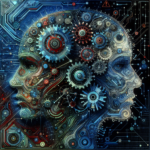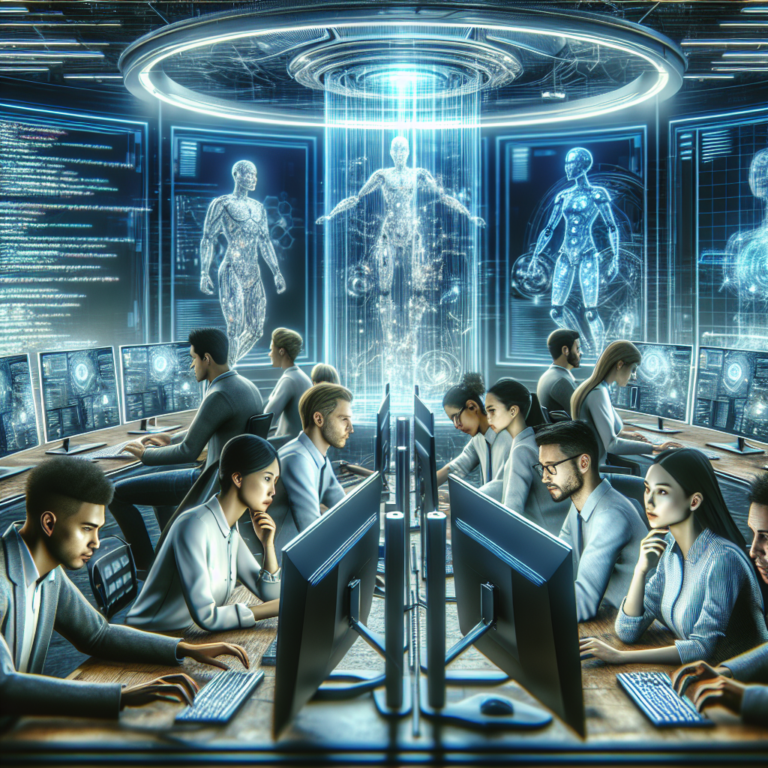Transforming Software Development with an AI Coding Assistant: Anthropic’s Claude
The software development landscape is witnessing a major transformation, similar to the shift that occurred with the rise of open-source coding. Today, AI coding assistants have transitioned from experimental tools to becoming fundamental assets in the thriving $736.96 billion global software development market. Anthropic’s Claude stands out as a leading tool in this change, quickly gaining traction and favor among developers worldwide.
Claude’s Remarkable Growth in Software Development
Claude, an advanced AI coding assistant, has shown impressive growth in adoption among developers around the globe. Within just three months, Anthropic reported an astonishing 1,000% increase in revenue tied to coding tasks. This surge indicates that more than 10% of all interactions with Claude now relate to software development, securing its position as the most popular application of the AI model.
This increasing interest has led to a significant $18 billion valuation for Anthropic, drawing over $7 billion in investments from technology leaders like Google, Amazon, and Salesforce, further highlighting the demand for innovative tools in development.
Innovation and Competition Among AI Coding Tools
The emergence of Claude has certainly caught the eye of its competitors. Recently, OpenAI introduced the o3 model, which showcases enhanced coding abilities. Also, tech giants like Google and Meta are ramping up their efforts, releasing their versions of coding assistants, Gemini and Llama 3.1, respectively.
This competition represents a significant shift in the AI landscape, as the focus moves from basic applications like chatbots to more practical tools that deliver immediate value to businesses. This rapid growth in capabilities benefits the entire software industry, fostering an ecosystem rich with innovation.
Alex Albert, Anthropic’s head of developer relations, observed, “We’ve seen a tenfold increase in coding revenue lately. Developers appreciate how our models meet their diverse needs compared to previous options.”
The Role of AI Coding Assistants in Development
What makes Claude truly unique is not just its code generation prowess; it functions like an experienced developer as well. The model can analyze up to 200,000 tokens of context, which is about 150,000 words. This capability allows Claude to maintain coherence throughout coding sessions seamlessly.
Albert commented, “Claude has a remarkable ability to maintain focus during extended coding tasks. It adeptly navigates multiple files, accurately edits code, and knows when to remove unnecessary sections instead of simply tacking on more.”
This method has resulted in substantial productivity gains. For example, GitLab reported a 25-50% boost in efficiency among teams using Claude, while Sourcegraph noted an impressive 75% increase in code insertion rates after adopting Claude as their main coding assistant.
Democratizing Coding for Everyone
Claude’s impact extends beyond developers, as it plays a vital role in democratizing coding. Now, marketing teams can generate their own automation tools, and sales departments can easily tailor their systems without relying on IT support. This shift turns what once posed a technical hurdle into an opportunity for various departments to address their unique challenges, fundamentally restructuring business operations.
Albert emphasizes, “We’re witnessing diverse teams, from recruitment to marketing, embracing coding with Claude. Our goal is not just about boosting developer productivity; we aspire to empower everyone to become developers.”
Navigating Security Risks and Employment Implications
Despite these advancements, the rapid incorporation of AI into coding does raise several concerns. The Center for Security and Emerging Technology highlights potential security risks connected with AI-generated code. Moreover, labor organizations are examining how these technologies may impact developer job prospects. Some reports indicate a surprising drop in new queries on platforms like Stack Overflow since AI coding assistants gained popularity.
However, rather than rendering developers obsolete, the integration of AI coding assistants seems to enhance their roles. As AI takes over routine coding tasks, developers are free to concentrate on system architecture, code quality, and innovative problem-solving.
This evolution mirrors earlier technological shifts in software development. Just as the advent of high-level programming languages didn’t eliminate the need for developers, AI assistants represent another layer of abstraction, simplifying development and opening the door to specialized skills.
Future of Software Development
Industry experts anticipate that AI will entirely reshape software development in the coming years. According to Gartner, 75% of enterprise software engineers are expected to rely on AI coding assistants by 2028, a striking increase from below 10% in early 2023.
To prepare for the future, Anthropic is introducing new features like prompt caching, which can significantly lower API costs, and batch processing capabilities that can handle up to 100,000 queries simultaneously.
Albert envisions a future where human developers and AI models work in harmony: “Eventually, these models will adapt to the tools we use. We won’t need to change our workflows drastically, as AI will seamlessly integrate into our processes.”
AI coding assistants
The benefits of AI coding assistants are also visible across major organizations. For example, Amazon has utilized its AI software development assistant to migrate over 30,000 production applications, yielding savings equivalent to 4,500 years of development work and generating an estimated $260 million yearly due to improved efficiency.
Nonetheless, the influence of AI tools is not without criticism. Some studies indicate minimal productivity boosts for developers using AI coding assistants. Reports suggest a 41% increase in bugs associated with AI tools, indicating that while they can speed up tasks, challenges regarding code quality and maintenance remain pertinent.
As this landscape evolves, traditional coding education is also undergoing change. Enrollments in conventional coding bootcamps are declining, while programs centered on AI-driven development are on the rise. This trend signals a future where technical literacy becomes as fundamental as reading and writing, with AI positioned as a bridge between human intent and machine language.
Albert anticipates this development is both natural and essential: “Just as we moved beyond assembly language, we continually create new abstractions.” He stresses that while grasping lower-level processes is still important, the increasing layers of abstraction will enable more individuals to engage in coding.
In this envisioned future, the boundaries between developers and users will blur, ushering in a thrilling new era in software development. 🌟




0 Comments